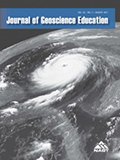Assessing the influence of an educational presentation on climate change beliefs at an evangelical Christian college

By Brian S. Webb and Doug Hayhoe
View profile for:
Despite an overwhelming scientific consensus, a significant proportion of the American public continues to reject anthropogenic climate change. This disparity is particularly evident among evangelical Christians, for whom theological conservatism, general scientific skepticism, political affiliations, and sociocultural influences may impede their acceptance of human-caused climate change.
Climate advocates have attempted to engage the evangelical community through various educational initiatives; lacking empirical measurement, however, it is difficult to draw conclusions regarding the efficacy of such programs. Here, we present the results of a study that addresses this lack by adapting questions from the Six Americas of Global Warming survey to measure the climate change beliefs of undergraduate students at an evangelical Christian college before and after attending a lecture by a Christian climate scientist.
The 88 participants who successfully completed a pre- and posttreatment survey were divided into three groups: the first attended a live lecture, the second attended a recorded lecture, and the third attended a similar version of the same recorded lecture in which the presenter removed material addressing common misconceptions about climate change. The results demonstrate a significant increase in the proclimate beliefs for students in all three groups. There was no significant difference between the impacts of the live and recorded lectures or between the recorded lectures with and without misconceptions.
These findings affirm the value of climate education among evangelicals; highlight the potential utility of such presentations, both recorded and live; and point to opportunities for research in the area of faith-based climate communication.
Article in Journal of Geoscience Education
Volume #: 65
Issue #: 3
Pages: 272-282
Publisher: Journal of Geoscience Education
Year: 2017
ISBN/ISSN: 1089-9995